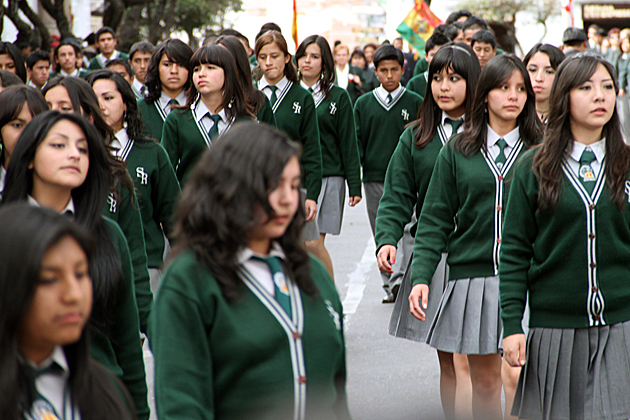Since the coronavirus lockdown began in Bolivia, Brisa De Angulo’s charity for sexually abused children has received hundreds of telephone calls from girls trapped in homes with their abusers, but one desperate plea stands out.
A 10-year-old pregnant girl, gang-raped by two cousins in her home, had gone into labour. She tried to get to a hospital but soldiers in the street enforcing the lockdown shouted at her to go home.

“She was so scared she didn’t tell them she was in labour and walked back home,” said De Angulo, who was prompted by the call to set up an emergency helpline last week for victims in quarantine.
The lockdown in Bolivia, like other quarantines imposed across Latin America, has raised issues of incest and child sexual abuse in a region already ravaged by high rates of sexual violence and teenage pregnancies caused by rape.
In Peru, more than one girl a day was raped during the first 17 days of quarantine, government figures showed.
The United Nations has described gender-based violence under coronavirus lockdowns as a growing “shadow pandemic.”
This week, more than 130 human rights groups signed a letter urging Latin American governments to step up measures to protect girls and address sexual violence.
With Bolivia in strict lockdown for the last four weeks, De Angulo said she fears for girls isolated with aggressors, often family members.
The lockdown also provides potential attackers “an opportunity to move into action,” she said.
In Bolivia, 29 people have died of coronavirus, and more than 400 cases of the disease have been reported.
Since the lockdown began, police say more than four dozen cases of violence against children, including sexual assault and rape, have been reported on average a day in Bolivia.
The government also has added abuse helplines since the quarantine started.
De Angulo herself is a survivor, raped for months when she was 15 by a cousin living in her home.
“The most dangerous place for a child for sexual violence is their home. We’ve always known that,” De Angulo, 34, told the Thomson Reuters Foundation.
“The risk has increased exponentially. Now children are 24/7 with their aggressors. We’re very worried,” she said.
Her charity, Breeze of Hope, provides free legal and psychological help to thousands of child victims in Bolivia’s central city of Cochabamba.
It was only after hours of phone calls to police and hospital authorities that De Angulo and lawyers at Breeze of Hope managed to get the pregnant girl and her mother to a hospital to give birth.
To the north in lockdown Honduras, online searches for the morning-after pill rose to being in the top three from being in the top 15 in just one week.
“I think it’s because women and girls are being forced to have sex in quarantine and are raped by their partners, by their family members,” said Paula Avila-Guillen, director of Latin America Initiatives at the Women’s Equality Center, a rights advocacy organization.
Girls suffering abuse who might have confided to teachers and friends in school will find it harder to seek help, experts said.
“Girls are at home and cannot go anywhere and they cannot speak. It’s a bad combination,” said Barbara Jimenez-Santiago, Latin America coordinator at Equality Now, a global women’s rights group.
At Bolivia’s Breeze of Hope, the calls and text messages have been relentless well into the night, De Angulo said.
One text message this week from a 12-year-old girl said: “If my dad sticks a pen down there, is that sexual violence?”
The helpline number is being advertised on television and radio stations and getting about 15 calls a day.
“I’m expecting that this is just going to increase in the following days,” De Angulo said.
The charity contacts police to intervene in emergency situations, but they are already overworked enforcing the lockdown, she said.
It takes days to build trust until callers feel safe to give their name and address, De Angulo added.
“We say ‘There are different things we can do, but first of all thank you so much for being brave and letting me know that this is happening. You are not alone. You are a hero.'”

